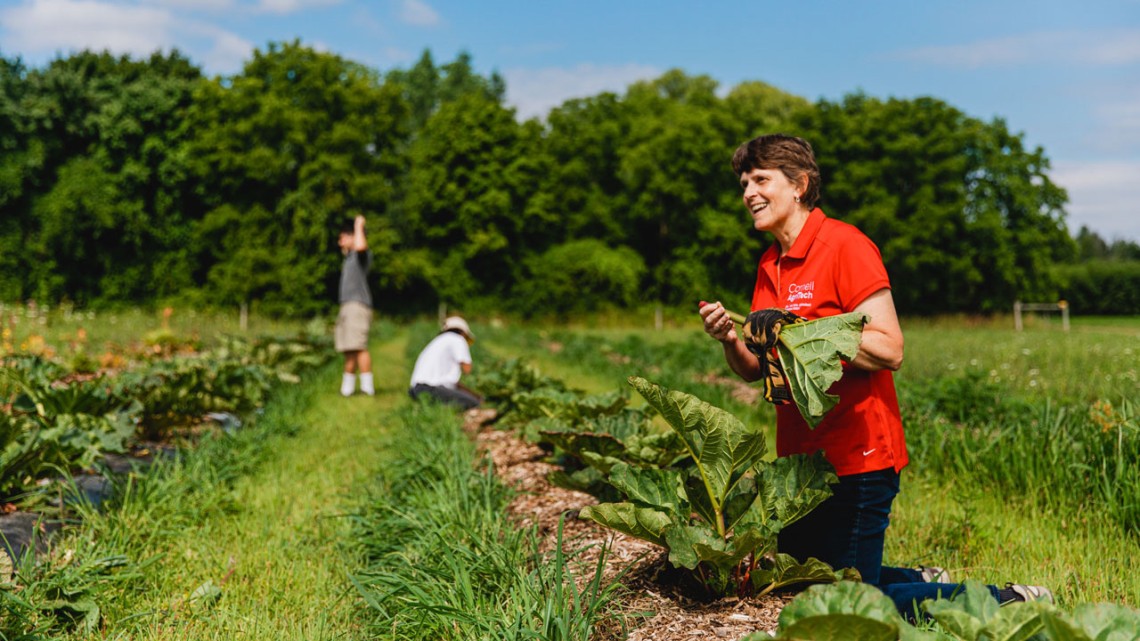Cornell University researchers believe rhubarb could become New York state’s next big thing in the craft beverage industry. With its unique combination of sour, sweet, and vegetal flavors, rhubarb has the potential to significantly enhance the state’s wines, beers, distilled spirits, and hard ciders.
Christine Smart, a professor in the School of Integrative Plant Science, and her team aim to develop rhubarb cultivars with a variety of flavors and colors. They are collaborating with Chris Gerling at Cornell’s Craft Beverage Institute to trial different rhubarb varieties in craft beverages.

“In talking with growers, chefs, and craft beverage producers, they are all looking for a crop that adds value to their products. For growers, it’s an early crop that is quite popular; for chefs, it’s a great ingredient and can add a unique angle to craft beverages,” Smart said.
Now entering its third year, the project has over 50 unique rhubarb genotypes planted. The team has 100 plants each of four different cultivars—Crimson Red, Canada Red, MacDonald, and Victoria—spread across 300-foot rows of raised beds at the AgriTech campus in Geneva. This is the first year the stalks can be harvested for use.
Smart and her team aim to advance rhubarb production in the Northeast, according to Libby Indermaur, a doctoral student in Smart’s lab. “Our main goals are to identify cultivars or develop our own breeding lines that would be good for craft beverages, to have our own supply that is commercially viable, and to provide more information about rhubarb to growers,” Indermaur said.
The team believes there is a demand for more rhubarb among growers, food producers, and craft beverage makers in New York. They highlight a large pie producer in the state that sources rhubarb from Poland due to limited local supply and point to New York craft beverage producers like Star Cider in Canandaigua, Montezuma Winery in Seneca Falls, and Embark Craft Ciderworks in Williamson, which have experimented with rhubarb-inflected options.
One logistical challenge is processing the fibrous rhubarb, which is too tough for traditional juicers. Gerling recommends freezing the rhubarb first, then thawing it and using an accordion-like benchtop juicer often used for apple cider to extract the juice.

